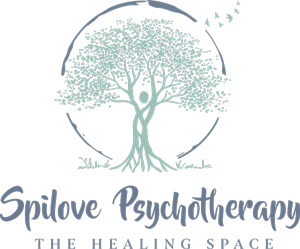How to De-escalate Arguments in Your Relationship—A Step-by-Step Guide
Emotional triggers in relationships can feel overwhelming. Sometimes, you don’t even realize what just happened until emotions are running high. But at the core of it, triggers are deeply personal and often tied to past experiences, insecurities, or unmet needs. Recognizing them, both in yourself and your partner, is part of building a deeper, more compassionate connection. It’s not about walking on eggshells, but it is about learning what makes each other feel safe, valued, and understood.
Step 1—Recognize the Signs of Escalation
Arguments often escalate due to raised voices, defensiveness, or shutting down. Pay attention to physical signs—racing heart, clenched jaw, or shallow breathing. When you notice these, it’s time to take a step back before things spiral further. Emotional flooding can make it difficult to think rationally, so recognizing the early warning signs allows you to intervene before the argument intensifies.
Step 2—Pause and Take a Breath
Instead of reacting impulsively, pause for a moment. Take a few deep breaths to calm your nervous system. This simple step can prevent saying things in the heat of the moment that may be regretted later. If needed, let your partner know that you need a moment to collect your thoughts before continuing the discussion. A brief pause isn’t avoiding the issue—it’s creating space for a more thoughtful response.
Step 3—Use Softened Language
Harsh words can escalate conflict, while softer, more mindful language fosters connection. Instead of "You never listen to me!" try "I feel unheard when we talk about this." Shifting from blame to expressing feelings helps keep the conversation constructive. Using "I" statements instead of "you" statements reduces defensiveness and encourages a more open dialogue.
Step 4—Validate and Acknowledge Feelings
When your partner is triggered, they might need reassurance, space, or just someone to listen. The best way to know? Ask. Try phrases like, "I hear you," "That makes sense," or "I see why that upset you." Validation doesn’t mean agreeing; it means acknowledging their experience. When people feel heard and understood, tension naturally decreases, making it easier to resolve the issue.
Step 5—Take a Break if Needed
Sometimes, a short break can help both partners regulate emotions. If tensions are too high, suggest a pause and agree to revisit the conversation once you both feel calmer. This isn’t avoidance—it’s a strategy to prevent further harm. Make sure to set a specific time to return to the discussion so that the issue doesn’t remain unresolved.
Step 6—Practice Active Listening
When resuming the conversation, focus on truly understanding your partner’s perspective. Instead of planning your response while they speak, listen attentively and reflect back what they’re saying. Phrases like, "So what I’m hearing is..." or "It sounds like you’re feeling..." show that you’re engaged and care about their emotions.
Step 7—Come Back and Find Resolution
Once both of you are in a calmer state, revisit the conversation with the goal of understanding, not winning. Focus on solutions rather than rehashing the argument. Ask, "What can we do differently next time?" to promote growth. Finding compromises and creating a plan for handling similar situations in the future can strengthen your relationship.
Strengthen Your Relationship with Support That Fits Your Needs
Relationships thrive not because we avoid triggers, but because we learn how to handle them together with patience, empathy, and the eagerness to understand each other on a deeper level. The key is not to eliminate conflict but to navigate it in a way that strengthens your bond rather than weakens it.
At Spilove Psychotherapy, we understand how challenging it can be to break unhelpful patterns and improve communication. Our therapists offer couples therapy to help you and your partner navigate conflict, rebuild trust, and foster a deeper connection. We also provide affordable couples counseling with an intern from Thomas Jefferson University, making quality support more accessible for those seeking guidance. No matter where you are in your relationship, we’re here to help you grow together.
Take the Next Step Toward Healthier Communication
Conflict is a natural part of any relationship, but it doesn’t have to drive you apart. Learning to recognize emotional triggers and de-escalate arguments can create a stronger, more connected partnership. If you and your partner find yourselves stuck in the same cycles, couples therapy in Philadelphia, PA, can help you break unhealthy patterns, improve communication, and foster deeper understanding.
You don’t have to navigate this alone.
Discover more de-escalation techniques by exploring our blogs.
Take the first step toward a healthier, more fulfilling relationship.
Other Therapy Services We Offer in Pennsylvania
In addition to our focus on couples therapy, our skilled therapists offer a variety of other mental health services. These include Ketamine-assisted Psychotherapy, LGBTQIA+ therapy, and treatment for eating disorders. We also provide specialized play therapy for children, EMDR therapy, and trauma intensives.
Our qualified therapists conduct DBT skills groups as well.
If life coaching is more suited to your needs than traditional therapy, we provide in-person life coaching in Pennsylvania and online services across the US.
About the Author
Antoinette is a master’s-level intern therapist passionate about supporting individuals and couples through trauma, major life transitions, and deeper self-exploration. She creates an inclusive, affirming space, particularly for BIPOC and queer communities, where clients can feel safe and seen.
Her approach emphasizes mind-body alignment, incorporating somatic practices to bridge emotional and physical experiences. Using emotionally focused therapy, CBT, narrative therapy, and attachment theory, she helps clients navigate depression, anxiety, relationship challenges, and trauma. Therapy with Antoinette is warm, approachable, and empowering.
Now accepting clients at reduced rates!





